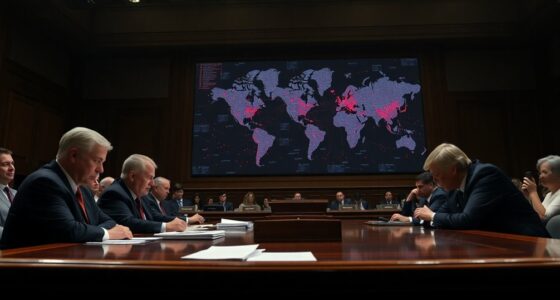
As tensions escalate between Taiwan and China, Taiwan has firmly countered Beijing’s recent accusations of cyberattacks, asserting that the claims are nothing more than a disinformation campaign. China has accused Taiwan of supporting cyberattacks through a group called “Anonymous64,” which it alleges is linked to Taiwan’s Information, Communications, and Electronic Force Command (ICEFCOM). However, Taiwan strongly denies these allegations, pointing to them as part of China’s broader strategy to undermine its sovereignty.
Taiwan emphasizes that China is the primary source of cyberattacks targeting it and many other democracies worldwide. By labeling these accusations as misinformation, Taiwan aims to clarify its position and highlight the ongoing cybersecurity threats it faces from China. As tensions have heightened, especially after Lai Ching-te took office, Taiwan finds itself under increasing scrutiny, not only from China but also from the international community concerned about China’s cyberwarfare tactics. Taiwan’s Defence Minister Wellington Koo has underscored that China’s role as a primary source of global cyberattacks is well-documented and should not be overlooked.
Taiwan asserts that China is the main aggressor in cyberattacks, emphasizing the need for heightened cybersecurity vigilance.
ICEFCOM has explicitly denied any involvement in cyberattacks against China, maintaining that its mission is to bolster Taiwan’s cybersecurity and national defense. Taiwan argues that the public domain photos used by China to support its accusations are misappropriated and lack context. Instead of engaging in cyber warfare, ICEFCOM focuses on protecting Taiwan from the very threats that China is accused of perpetuating.
Moreover, Taiwan is ramping up its cybersecurity defenses to better counter Chinese threats. With the reality of frequent cyberattacks looming, Taiwan seeks to ensure that it can safeguard its digital infrastructure. The support it receives from allies, particularly the U.S., reinforces its efforts to resist Chinese influence and maintain stability in the region.
China’s motivations for these accusations appear multifaceted. By promoting anti-Taiwanese sentiment domestically, it aims to rally nationalistic support while trying to undermine international backing for Taiwan. The accusations are also seen as part of a political agenda aligned with China’s stance against Taiwan’s independence movement.
As the situation unfolds, international implications become increasingly clear. The U.S. has reaffirmed its commitment to Taiwan, opposing any forceful attempts by China to alter Taiwan’s status. This support underscores the global concern over China’s cyberwarfare activities and the need for regional stability.
In this high-stakes environment, Taiwan remains resolute in countering these accusations while enhancing its defenses against a persistent adversary.









